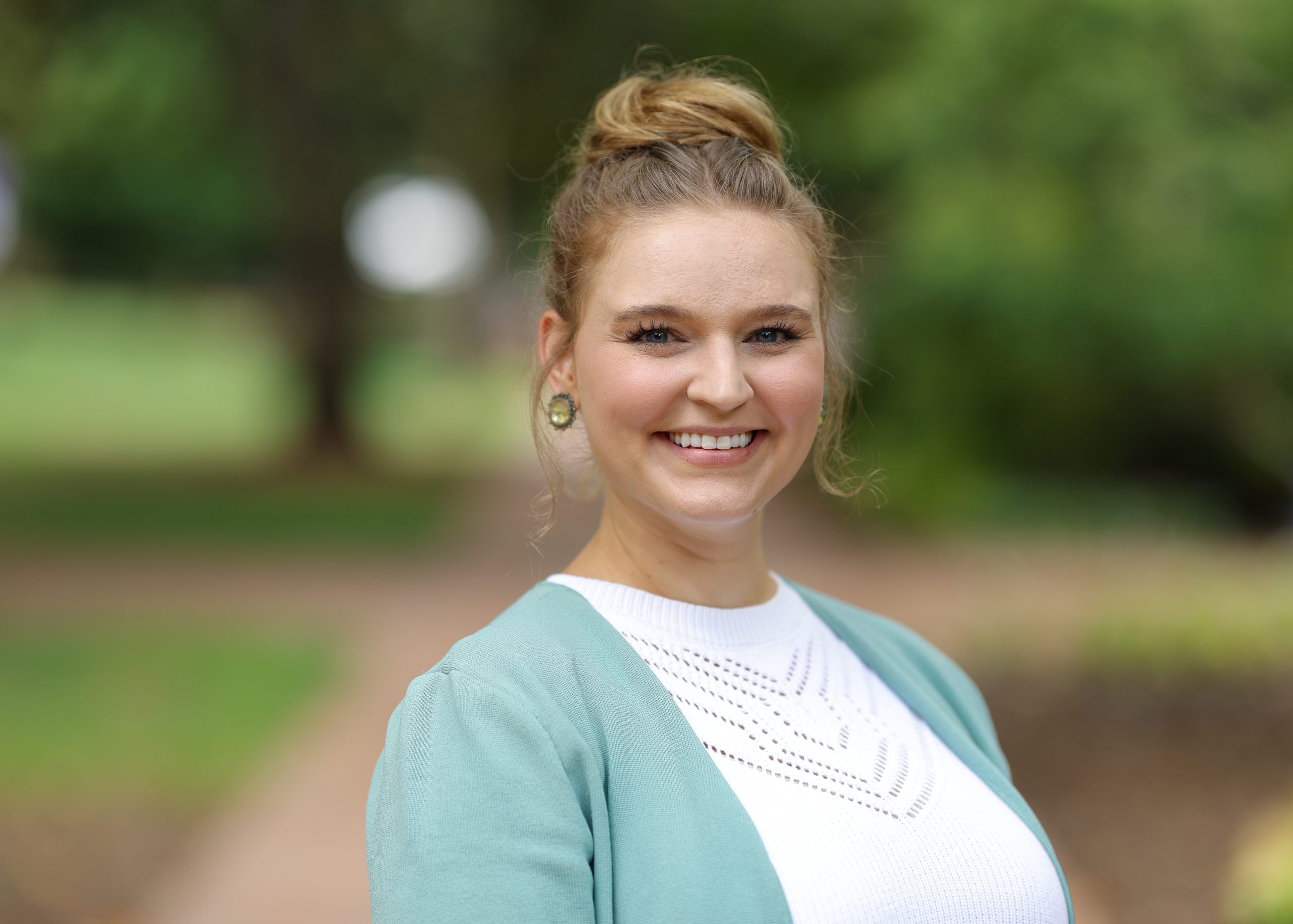
Amanda Burkholder
Assistant Professor of Psychology
- Email: amanda.burkholder@furman.edu
- Phone: 864.294.2534
- Office: Johns Hall 206-E
Amanda Burkholder's interest in psychology began when she was an undergraduate at University of Minnesota. She sought research experiences in a variety of different laboratories, working on projects spanning social, cognitive, and psychobiological development. After trying out many research areas, Dr. Burkholder found her passion at the intersection of moral development and intergroup relationships. Now, her research focuses on children’s and adolescents’ conceptions of social inequalities, how prejudice infiltrates peer settings, and the development of moral reasoning in intergroup contexts. Dr. Burkholder believes that the best research is collaborative, and encourages interested students ask about opportunities to conduct research in her laboratory.
In addition to research, Dr. Burkholder is deeply committed to teaching and mentorship. She is passionate about designing courses that engage students, challenge them to take multiple perspectives, and foster respect for the diverse and historically underrepresented voices they encounter within academia and in their future careers. She currently teaches courses on General Psychology, Childhood and Adolescence, and Research Methods and Statistics.
Dr. Burkholder joined the Department of Psychology at Furman University in 2022. In her spare time, she loves to read, hang out with her dog, and cook (and eat!) spicy foods.
Education
- Ph.D., University of Maryland
- B.A. University of Minnesota
Research Interests
Dr. Burkholder investigates the development of psychological perspectives and moral reasoning about prejudice, inequality, and intergroup relationships. Her research is guided by the constructivist cognitive tradition investigating how children actively build knowledge about their world.
She has three primary research interests:
1. Developing prejudice, bias, and social cognition in multigroup contexts.
Individuals are members of many different social groups simultaneously, including race, ethnicity, gender, and wealth. Dr. Burkholder explores how these multiple group memberships, and the differing levels of associated status, impact children's and adolescent's social perceptions and decisions.
2. Conceptions and evaluations of social inequalities.
In addition to research investigating how to mitigate existing social inequalities, it is important to understand how children's cognition about inequality influences their support for or rejection of unequal and equitable policies and institutions. In this line of research, Dr. Burkholder investigates children's and adolescents' developing conceptions about social inequalities based on status and group membership.
3. Fairness and Morality in Intergroup and Ambiguous Contexts.
Children develop conceptions of fairness and morality alongside awareness of group norms, biases, and prejudice. While in straightforward contexts, children often promote inclusion and acceptance of diverse peers, complex situations that include biases, unfair norms, or ambiguous concerns may sway children to justify exclusion or endorse prejudice and social inequalities. Dr. Burkholder thus examines the contextual influences on children’s developing conceptions of fairness and morality.
Representative Publications
- Sims, R. N., Burkholder, A. R., & Killen, M. (2022). Science resource inequalities viewed as less wrong when girls are disadvantaged. Social Development. https://doi.org/10.1111/sode.12629;
- Killen, M., Burkholder, A. R., D’Esterre, A. P., Sims, R. N., Glidden, J., Yee, K. M., Luken Raz, K. V., Elenbaas, L., Rizzo, M. T., Woodward, B., Samuelson, A., Sweet, T. M., & Stapleton, L. M. (2022). Testing the effectiveness of Developing Inclusive Youth: A multi-site randomized control trial. Child Development, 93(3), 732-750. https://doi.org/10.1111/cdev.13785;
- Burkholder, A. R., Glidden, J., Yee, K. M., Cooley, S., & Killen, M. (2021). Peer and parental sources of influence regarding interracial and same-race peer encounters. Journal of Social Issues, 77(4), 1063-1086. https://doi.org/10.1111/josi.12494;
- Burkholder, A. R., Elenbaas, L., & Killen, M. (2021). Giving priority to race or wealth in peer group contexts involving social inclusion. Developmental Psychology, 57(5), 651–661. https://doi.org/10.1037/dev0001178;
- Burkholder, A. R., Elenbaas, L., & Killen, M. (2020). Children’s evaluations of intergroup exclusion in interracial and interwealth peer contexts. Child Development, 91(2), 512-527. https://doi.org/10.1111/cdev.13249;
- Burkholder, A. R., Sims, R. N., & Killen, M. (2020). Inclusion and exclusion. In S. Hupp & J. Jewell (Eds.) The encyclopedia of child and adolescent development. Wiley Blackwell. https://doi.org/10.1002/9781119171492.wecad401;
- Burkholder, A. R., D’Esterre, A. P., & Killen, M. (2019). Intergroup relationships, context, and prejudice in childhood. In H. E. Fitzgerald, D. J. Johnson, D. B. Quin, F. A. Villarruel, & J. Norder (Eds.), Handbook of children and prejudice: Integrating research practice and policy (pp. 115-130). New York, NY: Springer. https://doi.org/10.1007/978-3-030-12228-7;
- Cooley, S., Burkholder, A. R., & Killen, M. (2019). Social inclusion and exclusion in same-race and interracial peer encounters. Developmental Psychology, 55(11), 2440-2450. https://doi.org/10.1037/dev0000810;
- Rizzo, M. T., Li, L., Burkholder, A. R., & Killen, M. (2019). Lying, negligence, or lack of knowledge? Children’s intention-based moral reasoning about resource claims. Developmental Psychology, 55(2), 274-285. https://doi.org/10.1037/dev0000635;
- Burkholder, A. R.,D’Esterre, A. P., & Killen, M. (2018). Prosocial reasoning. In M. H. Bornstein (Ed.), The SAGE encyclopedia of lifespan development (pp. 1753-1755). Sage Publications, Inc. https://doi.org/10.4135/9781506307633.n655;
- Li, L., Rizzo, M. T., Burkholder, A. R., & Killen, M. (2017). Theory of mind and resource allocation in the context of a hidden inequality. Cognitive Development, 43, 25-36. https://doi.org/10.1016/j.cogdev.2017.02.001;
- Burkholder, A. R., Koss, K. J., Hostinar, C. E., Johnson, A. E., & Gunnar, M. R. (2016). Early life stress: effects on the regulation of anxiety expression in children and adolescents. Social Development, 25(4), 777-793. https://doi.org/10.1111/sode.12170
0